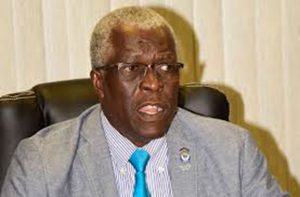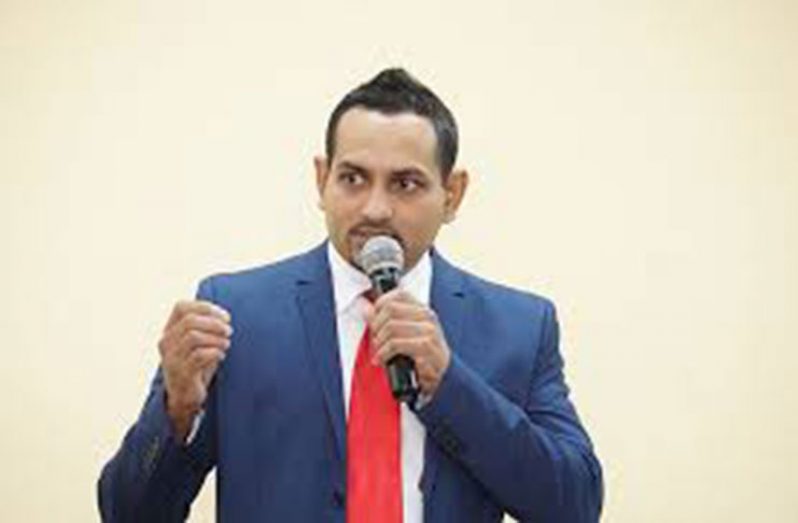…stakeholders urge as one way to climb out of COVID-19 crisis
-overflights down to 9.7%, domestic flights remain at 92.4%
GUYANA and the world over have experienced the damning effects of the Novel Coronavirus (COVID-19) pandemic, which has not just killed and infected people, but has “suffocated” various sectors, including the tourism sector, which is a major contributor to the Gross Domestic Product (GDP) of many Caribbean countries, including Guyana.
Though saving lives must remain on the front burner, there is also need for an “antidote” for the ailing tourism sector, which, to some extent, has already hit rock bottom. With 286,732 total visitors in 2018, it was estimated that travel and tourism injected approximately GY$62.6B directly into Guyana’s economy, making tourism its second largest export sector. A replication of this is, however, looking virtually impossible, as tourism continues to take a hit because of COVID-19.
The antidote could, however, be right “under the noses” of stakeholders, and Director General of the Guyana Civil Aviation Authority (GCAA), Lt. Col. (ret’d) Egbert Fields, and President of the Guyana Tourism and Hospitality Association (THAG), Mitra Ramkumar, brought this to the fore during a tourism stakeholder “zoominar” titled “lockdown not shutdown: keeping tourism alive in the current crisis.”
The possible solution proposed by the two stakeholders was, to focus on domestic tourism in the absence of foreign tourists. “If we start talking about domestic tourism, we would have healthy tourism, as we await international tourism,” said Fields.
Domestic travel remains one of the main reasons why the local aviation industry is still alive, and this is premise on the fact that weekly domestic flights remain at 92.4 per cent while weekly “overflights” have dropped to 9.7 per cent, moving from 480 in January to 47 to date. The drop in flights is also owed to the fact that Guyana’s international airports have been closed to passenger flights for just about two months.
And, with the possibility of the COVID-19 pandemic becoming endemic, with the absence of treatment or a vaccine, Fields said stakeholders will have to look at the best ways of co-existing with the disease, in order to keep the aviation and tourism sectors alive.
To this end, he believes that a number of things can be done to sustain tourism. And, in line with his idea of pushing domestic tourism, he advised tourism stakeholders to develop new tour packages, which target local companies and individuals, and also introduce subsidised packages for Guyanese. In order to pull this off, he believes that local operators should explore collaborations.
With no assurance of the disease going away anytime soon, tourism operators need to plan for the long term and their plan should have health as a priority, even for domestic travel.
THAG’s President, Ramkumar, also spoke along the same line, noting that emphasis should be placed on regional and domestic tourism during this time of crisis. He believes that domestic tourism should be incentivised, especially in Guyana’s case, since this country is larger than many Caribbean neighbours and is richly diverse.

“We have diversified people and cultures, diverse landscapes, rich bio-diversity and live eco-systems and I have not mentioned the waterfalls as yet,
“Guyana’s strength is accessing niche markets and therefore our eco, adventure and cultural tourism product is well positioned for accommodating small numbers, ideal for social distancing,” said Ramkumar.
The THAG president also believes that regional tourism should be incentivised, and government and airports should reduce the travel taxes and passenger fees.
Giving an example of the existing taxes and fees at the Cheddi Jagan International Airport, Ramkumar said travel voucher tax is 15 per cent, travel tax is US$16.83, airport security fee US$20, and the passenger service fee for arriving and departing passengers is US$15 each.
“Therefore, with a base fare of US$300 persons would be paying US$112 per person in travel taxes and airport fees; therefore a family of five would be paying US$60 in addition to their base fees,” said Ramkumar.
Going forward, he believes that these fees and taxes will have to be revised in order to make regional travel more affordable.
It was reported last week that the Caribbean Community (CARICOM) is examining the protocols and policies necessary for a possible reopening of Member States guided above all by the health risks of COVID-19.
This was one of the main topics discussed by Heads of Government on Tuesday at the Tenth Special Emergency Meeting of the Conference of Heads of Government via video conference. In attendance on Guyana’s behalf was President David Granger, accompanied by Minister of Foreign Affairs, Dr. Karen Cummings. A release from CARICOM, on Thursday, provided a report of the discussions which took place.
“Heads of Government welcomed a presentation from a Regional Working Group which indicated that the pandemic was largely contained in the Region due to the decisive action by governments to put restrictions in place. They also noted the emphasis by the group that re-opening by the Member States must be done with the health consideration being the foremost criterion,” the release stated.
“The recommendations included parameters for the easing of restrictions in Member States that would allow for a re-opening in phases. The recommendations also included suggested criteria for a protocol on the re-opening of airports for intra-regional travel. The draft policy will be resubmitted to Heads of Government for final approval.”
The intention was first discussed at the Ninth Special Emergency Meeting after CARICOM Chair, Mia Mottley, has recognised that “regional blocks” will become more important as countries worldwide may remain fearful of full globalisation.
She said that countries will have to rely on their neighbours and there is no better time for CARICOM to band together than now. At the Tenth Meeting, the need for a common protocol for the re-opening of regional airports to flights from selected third world countries and the re-opening of hotels were discussed.
As a result, Heads of Government established a sub-committee led by Prime Minister of Saint Lucia, Allen Chastanet, to have discussions with stakeholders in the tourism industry, including the hoteliers, airlines, cruise operators and the labour unions to settle the appropriate protocols needed to ensure safety for workers and visitors upon re-opening of the sector.



.jpg)








